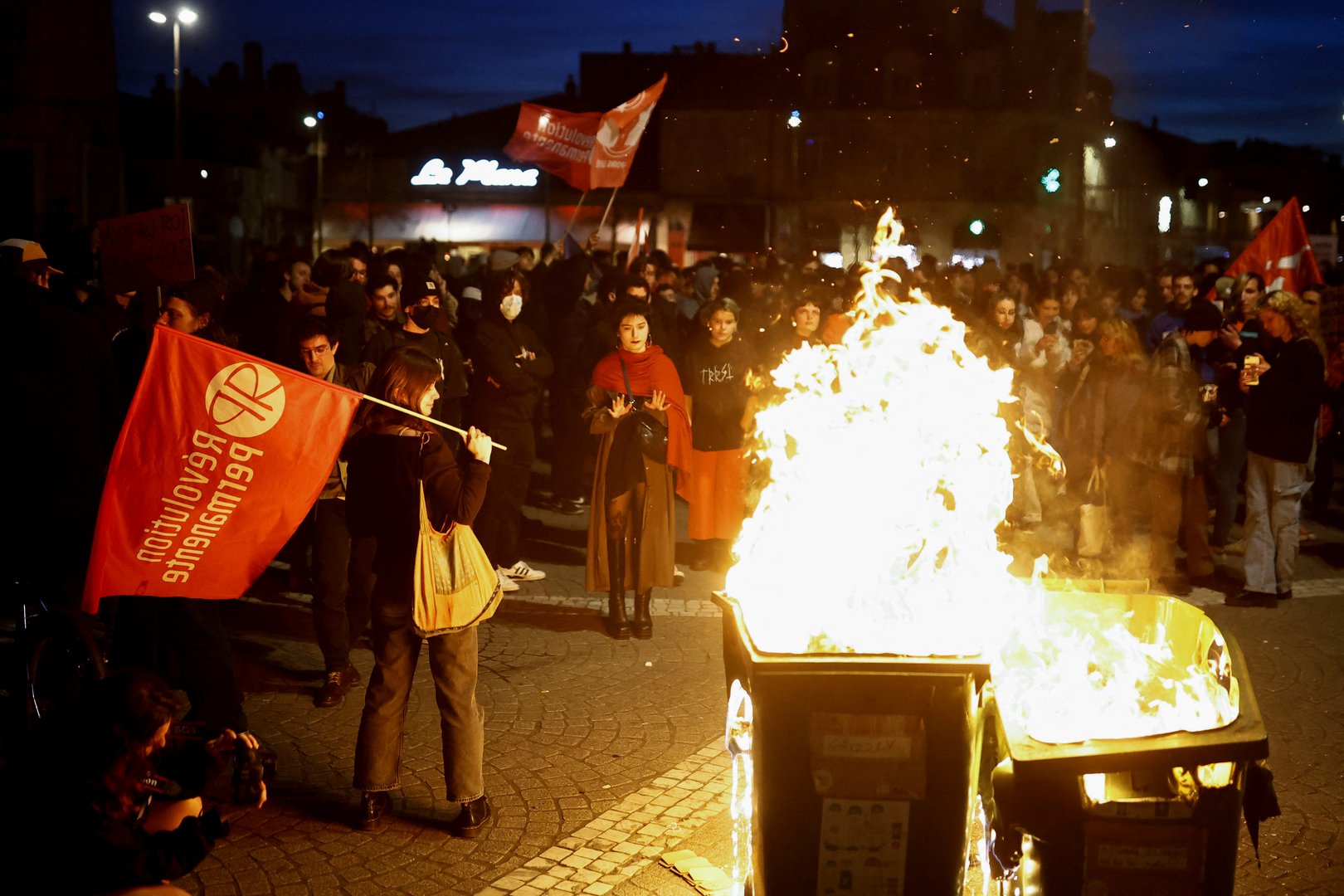Dozens of people were arrested across France after sporadic protests broke out hours after President Emmanuel Macron’s government narrowly survived a no-confidence motion in parliament on Monday over a deeply unpopular pension reform.
The failure of the vote will be a relief to Macron. Had it succeeded, it would have sunk his government and killed the legislation, which is set to raise the retirement age by two years to 64.
But the anger was felt as protesters took to the streets in cities across France, opposition lawmakers vowed to force a U-turn and unions prepared for nationwide action on Thursday.
In some of central Paris’ most prestigious avenues, firefighters scrambled to put out burning rubbish piles left uncollected for days due to strikes as protesters played cat-and-mouse with police for a fifth night.
What may concern the executive is the large number of young people in the demonstrations.
Television images showed police briefly firing tear gas and charging at protesters in several towns with special motorbike officers seen striking out at protesters.
That prompted the U.N. Special Rapporteur for Freedom of Association, Clément Voule, to say in a Twitter post that police should avoid using excessive force.
The vote on the tripartisan, no-confidence motion was closer than expected. Some 278 members of parliament backed it, just nine short of the 287 needed for it to succeed.
“We are coming to the end of the democratic process of this essential reform for our country,” Prime Minister Elisabeth Borne said. “It is with humility and seriousness that I took my responsibility and that of my government.”
Opponents say this shows Macron’s decision to bypass a parliamentary vote on the pension bill – which triggered the no-confidence motions – has already undermined his reformist agenda and weakened his leadership.
All eyes now turn to the president who is due to speak to the nation on Wednesday afternoon, according to France Info radio.
Macron will hold talks later on Tuesday with Borne, the heads of both houses of parliament, and lawmakers in his political camp as he seeks to plot an exit to the political crisis.
The key question in the coming days will be whether Macron sticks with his existing government as he looks to freshen things up even if the potential paralysis in parliament will make governing more complicated.
“Nothing is resolved and everything in the country continues so that this reform is withdrawn,” Mathilde Panot, the parliamentary chief of the far-left La France Insoumise said.







Click here to change your cookie preferences